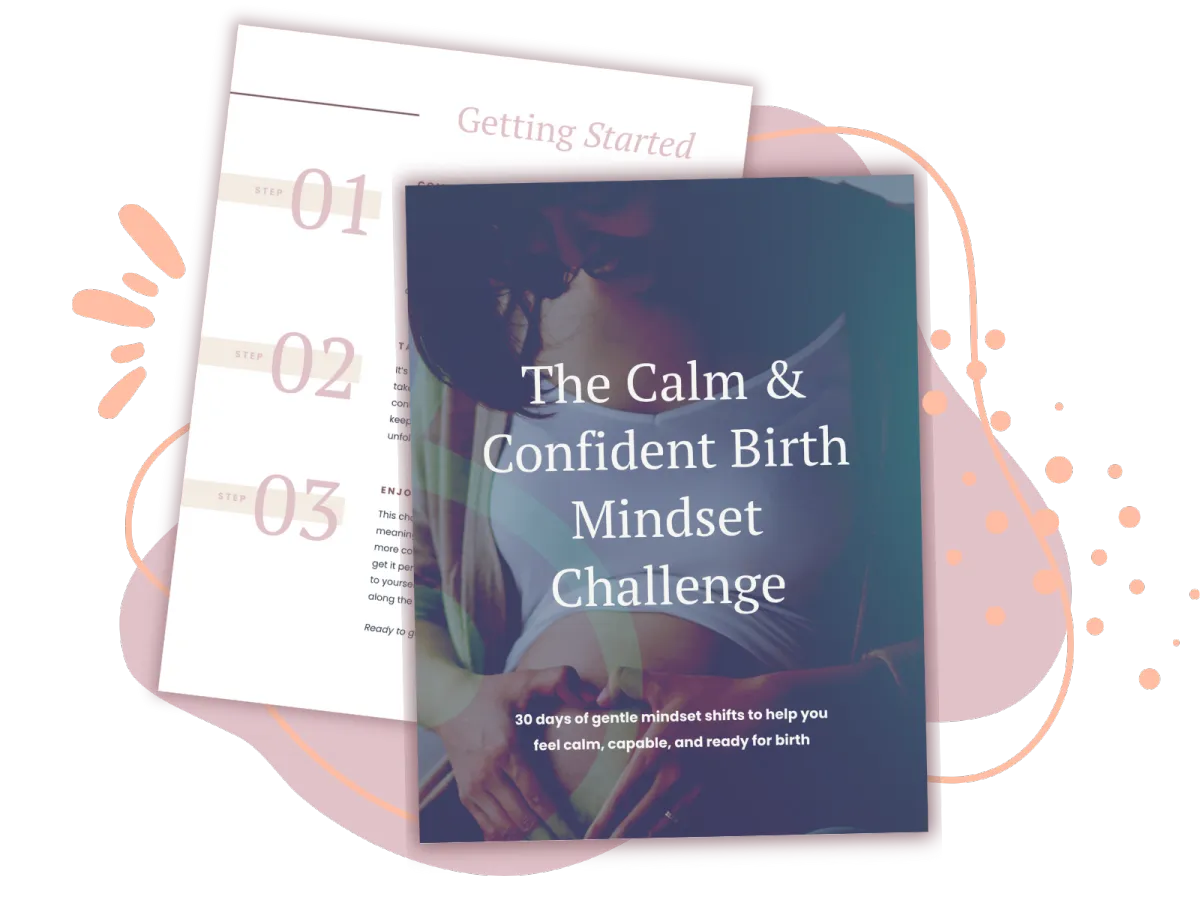
Using Your Past Birth to Shape a More Positive Birth This Time
Pregnancy after a previous difficult or traumatic birth can bring a whole mix of emotions. Sometimes you can feel flooded with fear, anxiety, and uncertainty — and that can make it hard to find any of the excitement or joy you might be hoping to feel. You might find yourself panicking about how this birth will go or worrying that history could repeat itself.
If that's you, it makes complete sense. And your previous experience, as painful as it was, holds something genuinely useful.
Reflecting on Your Past Birth - Gently
Healing often begins when you allow yourself to look back at what happened. Not to relive it. Not to go over every difficult detail. Just to understand your experience a little better, and to give it some meaning.
When you feel ready, you might take some quiet time to think about:
What stands out most when you think about your last birth?
What felt supportive, and what didn't?
Were there moments when you felt unheard, dismissed, or out of control?
These reflections aren't about blame. They're about awareness. The more you understand what contributed to your distress last time, the clearer it becomes what you'll need this time to feel grounded, respected, and cared for.
Writing your thoughts down, or talking them through with someone you trust, can help bring clarity. Even simply acknowledging "that was hard for me, and I want it to be different this time" is a meaningful step.
Turning Insight Into Action
Once you have a clearer sense of what you want to be different, you can begin putting things in place that help you feel calmer and more in control. The key is to focus on what's within your influence, your environment, your birth preferences, your communication, and your support around you.
You might want to:
Share your story early. Let your midwife or consultant know that your last birth was distressing. Ask how they can support you differently, and what trauma-informed care might look like for you specifically.
Request continuity of care. Seeing familiar faces, or being supported by the same midwife where possible, can make a real difference in rebuilding trust. It isn't always possible, but it's always worth asking for.
Create a birth plan that covers your emotional needs as well as your physical ones. Include what helps you feel calm, what language feels reassuring, and what you'd like your care team to know about your previous experience. My free How to Write Your Birth Plan Birth Guide & Template can help you with this, it's written specifically for people who've been through something difficult before.
Talk through possible triggers. If certain sounds, phrases, or procedures feel difficult, it's okay to name them. Your care team can either help you avoid them, or support you through them if they're unavoidable.
Prepare for what's within your control. If complications arose last time, talk through what can be done differently, whether that's additional monitoring, specific support, choosing a different birth setting, or a different mode of birth altogether.
Being proactive in these ways isn't about trying to control everything. It's about preparing your environment, your care team, and your mind so you can move forward with more confidence and less fear.
Recognising Your Strength
It's easy to focus on what went wrong. But your previous experience also showed you something about yourself, that you're still here, still trying, still wanting something better. That really matters.
You might notice that you now have more knowledge about your options. More awareness of what kind of support helps you. A clearer sense of what you need to feel safe and informed.
You might also find that there were moments in your previous birth, even small ones that felt good, or where someone made you feel seen. Maybe your hand held at the right moment. A brief exchange that stayed with you. Those moments are worth bringing forward too.
Your previous birth doesn't define you. But it can guide you.
Planning for Emotional Safety
A birth plan isn't just about the practicalities. It's also about emotional safety, and feeling genuinely understood can make an huge difference in how your body responds during labour.
A few things worth considering:
Ask for a birth planning appointment with a midwife who has training in trauma-informed care or perinatal mental health
Use your plan to outline your needs clearly, whether that's dim lighting, calm communication, or knowing your partner will stay with you throughout
If you're having a planned caesarean, you can still bring calm and connection into theatre - soft music, a gentle atmosphere in the room, immediate skin-to-skin if you and the baby are well
When you're honest with your care team about what you need, you give them the chance to actually support you.
Moving Forward
Healing after a difficult birth doesn't mean forgetting what happened. It means being able to look back with a little more understanding and a little less pain. It's okay if some fear remains, that's a natural response to wanting to protect yourself and your baby.
But alongside the fear, there's also something else. Wisdom. Awareness. And the fact that you're here, preparing, trying again.
You know more about yourself now than you did last time. And with the right support around you, this birth can feel calmer, safer, and more like yours.
Would you like some support?
If this resonates, I specialise in supporting people who are pregnant again after a difficult or traumatic birth. Through a blend of therapeutic techniques, I can help you rebuild trust in your body, your care team, and yourself, so you feel calm, informed, and genuinely supported every step of the way.
Sign up for regular emails with practical tools to support you through your pregnancy, no pressure, just daily support that actually understands.
With compassion, Katie NHS Mental Health Midwife | Perinatal Trauma Specialist


